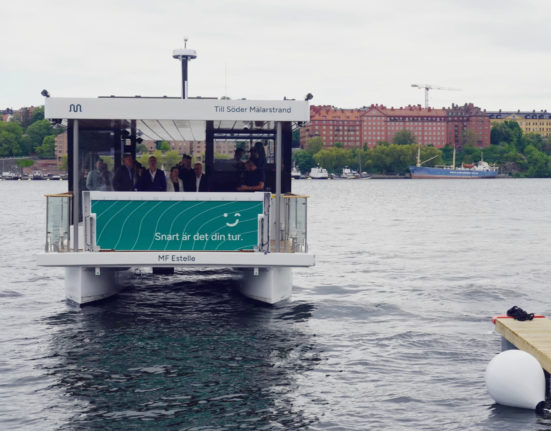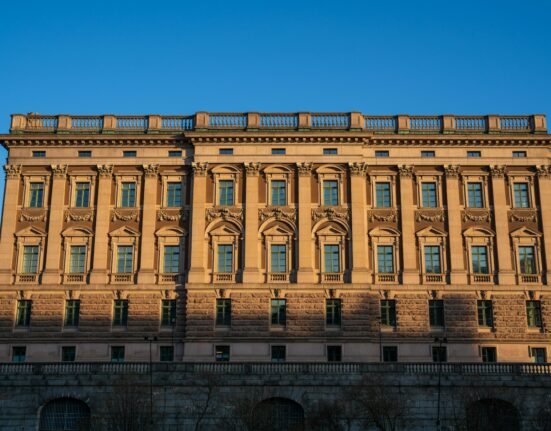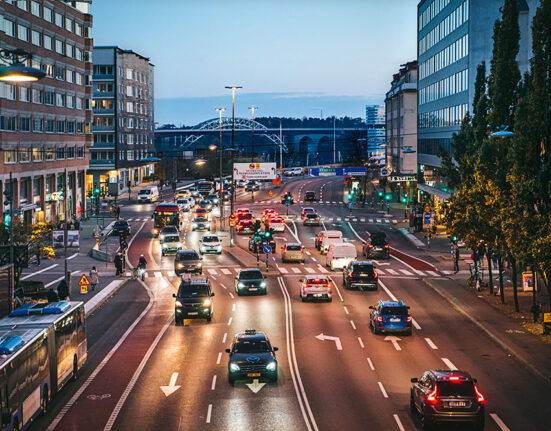Europe’s first Green Capital is taking a step further banning petrol and diesel vehicles in the center of the city starting on 31 December 2024. Beginning next year, a part of the inner city will be open to electric vehicle traffic only. Hopefully, noise pollution which is also a major environmental problem will be reduced, in addition to air pollution, that adversely affects the health of both young and elderly people. The good news is, Stockholm has in place a plan to reduce sound disturbances in the city that would otherwise impact residents and visitors alike.
Health issues and quality of life
Studies show that high levels of noise can lead to health problems such as hearing loss or impairment. These conditions are worrying in urban spheres like Stockholm where traffic noise, construction activities, and other types of sound disturbances are prevalent. Sleep patterns may be changed by noise pollution resulting in insomnia and other sleeping disorders. Research also suggests that chronic exposure to noise pollution is linked to an increased risk of cardiovascular problems. An article by Harvard Medical explained that a 5-decibel increase ‘in the average 24-hour noise level’ was connected to a 34% increase in strokes and other serious heart-related issues.
Furthermore, sound disturbances impact the mental wellbeing of an individual particularly if constantly exposed to noise in bustling cities like Stockholm. Research reports suggest that noise pollution can impair cognitive function in children and older adults with symptoms manifesting as difficulty in concentrating, memory issues, and poor academic or work performance. Hence, overall quality of life is diminished due to noise pollution disrupting daily activities and reducing their enjoyment. To mitigate these health risks, individuals and households in Stockholm take important steps in reducing noise pollution.
For instance, investing in soundproofing systems for windows, doors, and walls lowers the amount of external noise that enters an abode or building. Installing double-glazed windows, weatherstripping doors, and installing sound-absorbing materials such as acoustic panels or heavy curtains are helpful initiatives. According to a survey conducted by Ljunggren and Simmons on sound insulation in multi-family homes, the occupants of buildings appear to be fairly satisfied with the acoustical quality in their homes. Swedish legislation dictates that structures must meet the minimum requirements for airborne sound insulation to protect inhabitants against unwanted noise coming from airborne sound sources. Façade insulation and sound shields constructions for ‘vulnerable homes’ are also significant initiatives by the City that benefited nearly 60,000 residents. Hence, legislation plays an important role in managing noise pollution in an urban environment.
Reducing ambient noise
Another vital strategy that was outlined in Stockholm’s 2019-2023 action plan for noise is to reduce unwanted sounds at source. To achieve the objective, there are several measures that can change noise levels drastically. Infrastructure upgrades for roads, railways, and airports can help undesirable noise levels plummet. As such, installation of noise barriers and sound-absorbing road surfaces are solutions that help reduce noise pollution.
Stockholm’s Environmental Work report indicated that the number of Stockholmers exposed to excessive noise levels or greater than 35 dBA has dropped immensely since the 1970s. There are 60km of noise barriers and more than 50,000 soundproofed windows. Less noisy asphalt and covered roads and railways also help in lowering sound disturbances. Quiet hours which begin in the evening and end in the morning (10pm-8am) are enforced as well as decibel limits that are allowed during different times of the day. If there are events or activities that generate excessive noise, special permits must be sought especially if these occur during quiet hours. Usually, residential areas have lower noise limits than commercial or industrial zones. But, even construction companies are required to adhere to specific noise mitigation measures. They must conduct noise assessments to evaluate the potential impact of their activities and machineries. Facilities may need soundproofing or noise barriers to limit the disturbances generated by equipment or industrial processes. Furthermore, scheduling noisy activities or implementing quiet technologies can shrink noise emissions.
Transition to green vehicles
In addition to promoting public transportation, the city also encourages cycling and walking as alternatives to driving easing traffic congestion and noise levels. Given that traffic volume is directly linked to noise pollution, fewer vehicles on the road will cut noise generation significantly. Furthermore, the ban on petrol and diesel cars will hopefully encourage a substantial shift towards electric vehicles (EVs) which are quieter than traditional internal combustion engine (ICE) vehicles. However, noise pollution is not only generated by cars. Trucks, buses, motorcycles, and equipment can also contribute to the problem.
Hence, a comprehensive strategy to include all types of vehicles and machinery can cut noise pollution levels considerably. However, the proposed scheme has some limitations as there are several exceptions to the ban. To illustrate, vans with plug-in hybrid engines will be allowed in the restricted zones. Ambulances and police cars as well as those driven by people with recognized disability are exempted from the ban.
The city’s plan towards zero carbon emissions by 2040 is ambitious, but possible with political will, regulation, technological innovation, and public participation. For sure, it will require substantial and sustained efforts and investments in the coming years to realize this vision.












